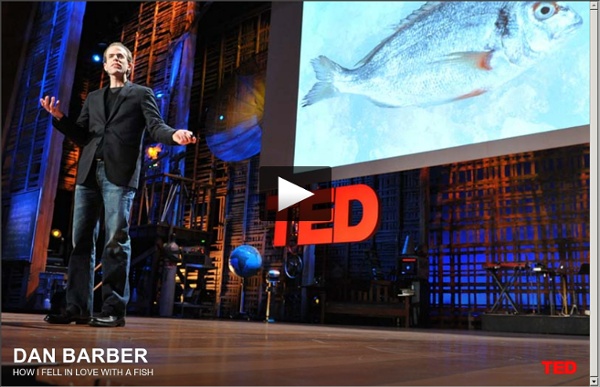



The Blog of Author Tim Ferriss “Everyone’s looking for rules to follow, and the sooner you realize there aren’t any, the better art can be.”– Jerrod Carmichael Jerrod Carmichael is pushing the boundaries of comedy with his groundbreaking work in stand-up, television, and film. Now just 29 years old, what this driven North Carolina native has accomplished is mind-boggling, and 2017 is going to be his biggest year yet. Jerrod stars in the hit NBC series The Carmichael Show, which he also writes and executive produces. The third season of the show premieres in 2017. Love at the Store is the funniest standup special I’ve seen in many years, and it’s the reason I reached out to Jerrod. In the summer of 2016, Jerrod reprised his role as ‘Garf’ in the Universal comedy sequel Neighbors 2: Sorority Rising opposite Seth Rogen and Zac Efron. Jerrod recently announced his upcoming authorial debut with an as-yet-untitled memoir. Please enjoy my wide-ranging conversation with Jerrod Carmichael! Scroll below for links and show notes…
Recept Wafels (8 Soorten + 1 Variant) Lierse wafels: 1 kg zelfrijzend bakmeel, 1 eetl droge gist, 1/2 kg suiker, 1 mespunt zout, 400 gr boter, 5 eieren Suiker wafels: 500 gr bloem, 400 gr fijne suiker, 3 pakjes vanille-suiker, 5 eieren, 400 gr boter, 1 snuifje zout Fijne wafels: 180 gr fijne suiker, 3 eieren, 200 gr boter, 2 pakjes vanille-suiker, 250 gr bloem, 1 snufje zout Jacht wafels: 1 kg bloem, 1 soeplepel parelsuiker, 75 g verse gist, 500 g margarine of boter, 6 eieren, 1 kop lauw water, 1 snuifje zout en suiker naar smaak (500 tot 700 g) Belgische suikerwafels: 400 gr bloem, 35 gr gist, 2.5 dl melk, 1 ei, 30 gr suiker, 300 gr boter, 1 zakje vanillesuiker, 150 gr bloem, 3 gr bakpoeder, kaneel, iets zout, 250 à 350 gr griessuiker Belgische Zandwafels: 250 gr boter, 250 gr suiker, 250 gr bloem, 5 eieren, 1 pakje vanillesuiker, geraspte citroenschil, 1/8l melk, bloemsuiker en/of gesmolten boter Brusselse wafels 2: 200 gr boter, 6 eieren, 85 cl lauwwarme melk, 35 g gist, 1 zakje vanillesuiker, 500 g bloem
Engineering the 10 000-Year Clock The year is 12011. Two hikers cut through a stretch of cactus-filled desert outside what was once the small town of Van Horn, near the Mexican border, in West Texas. After walking for the better part of a day under a relentless sun, they struggle up a craggy limestone ridge. Finally they come to an opening in the rock, the mouth of what appears to be a long, deep tunnel. As they head into the shadows, not quite knowing where the tunnel will lead, the sudden darkness and the drop in temperature startle their senses. After a few minutes the hikers reach a cool chamber dimly lit from above. A giant metal wheel sits in the middle of the platform, and the visitors each grasp a handle that juts out from its smooth edges. It sounds like science fiction, but this is the real vision for the 10 000-Year Clock, a monument-size mechanical clock designed to measure time for 10 millennia. This clock, the flagship project of Hillis's Long Now Foundation, is a wonder of mechanical engineering.
Behind the TEDTalk: New mini documentary starring Sir Ken and Raghava KK With 300 million views since we started posting video in 2006, TEDTalks have become a powerful cultural force. But it all starts with a single person on a stage … At TED2010, we sent a video crew to follow two speakers as they prepared to give the talk of their lives. One, the artist Raghava KK, had never spoken at TED before. The other, Sir Ken Robinson, in 2006 gave one of the most emailed TEDTalks of all time; this was his first time speaking at TED since then. And watch these TEDTalks:Ragava KK’s Five lives of an artistSir Ken Robinson’s: Bring on the learning revolution! Video credits: Video by m ss ng p eces Executive producer Jason WishnowProduced by Ari Kuschnir and Ben Nabors Filmed by Josh Nussbaum and Todd BanhazlEdited by Adam McClelland Music credits: Music Supervision and Rights Coordination bySamuel Valenti IV & Jeremy Peters at Ghostly Songs Music Supervision “Viper Skies”Written by Jason CorderPerformed by Offthesky© 2009 Copyright ControlLicensed Courtesy Jason Corder